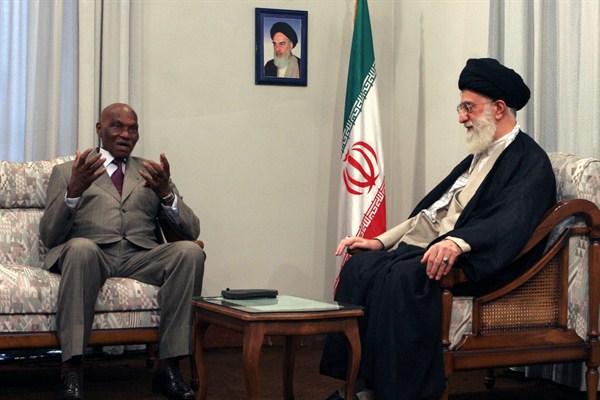On Jan. 6, Djibouti announced it was severing relations with Iran inresponse to attacks on Saudi Arabia’s diplomatic missions in Tehran, following the execution of a prominent Shiite cleric by Saudi authorities. Shortly after, a joke appeared on Telegram, an instant messaging app popular among Iranians: “One good thing that the snapping of ties with Saudi Arabia taught me is geography. At least now I know where Djibouti is.”
Although many Iranians have since dismissed the tiny Horn of Africa state as an inconsequential actor, it was not that long ago that Tehran sought to expand its engagement with small but strategic Djibouti. Former Iranian President Mahmoud Ahmadinejad even traveled there in 2009, a visit that yielded five economic cooperation agreements.
Ahmadinejad’s trip to Djibouti represented part of a wider strategy aimed at increasing Iranian influence in Africa. Iran watchers have largely attributed this policy to Tehran’s desire to thwart attempts by its adversaries to isolate the Islamic Republic. While Iran’s African outreach in recent years has included predominately Christian countries such as South Africa and Zimbabwe, much of its focus has fallen on states where Muslims form a majority or plurality of the population. Notable recipients of Tehran’s attention and largesse have included Comoros, Senegal and Sudan. Despite some initial success, however, Iran’s efforts have lately suffered several significant setbacks amid a growing battle for influence in the Middle East and beyond with its main rival, Saudi Arabia. The same month Djibouti broke off diplomatic links with Tehran, the governments of Sudan, Comoros and Somalia also severed their ties to the Islamic Republic. Senegal, meanwhile, has come out in support of Riyadh’s ongoing military campaign against pro-Iranian Houthi rebels in Yemen, even announcing plans last year to deploy more than 2,000 troops to the country.

